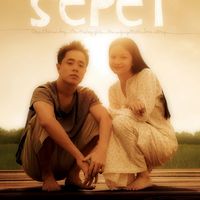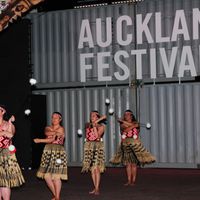An Interview With Rennie Gomez, Managing Director Of Yellow Box Studios
Nothing puts together a film more than a strong soundtrack and fantastic sound design. The talents behind this often aren't in the limelight the way directors and actors are. These days, the business of “sound” extends beyond the laying down of a simple track. It could be the difference between a good film and a great film. Wahyuni A. Hadi chats to Rennie Gomez, Managing Director of Yellow Box Studios, a sound studio that has had its hand in many Singapore and regional films.Q: Hi Rennie, introduce us to Yellow Box.
Yellow Box Studios was formed in 1995 with the sole aim of providing music and sound design for the media industries which basically covers advertising, broadcast , film, drama and web design. Ricky Ho, for instance, has worked with the likes of Tsui Hark, Wong Kar Wai and other very prominent film directors out of Hong Kong. Our aim is more on giving an extra edge in all our tracks so as to render an international feel in them thus making them as marketable across as many regions as possible. Fortunately through the years we've managed to write music for international campaigns as VISA, Hewlett Packard, Sony, Toyota .. just to name a few. Our work has also won us a number of international ad awards such as D&AD (London) , The One Show (New York) and the Asian Media Awards, in the area of Use of Music and Sound Design. Through the years, we have come to see that 90 per cent of our work comes from advertising. In a sense it is our work in advertising that has enabled us to work on some the more prominent feature films coming out of Singapore.
Q: And what's your role there?
I am currently Yellow Box's Managing Director. Its is my job to basically steer this company not only creatively but also to ensure it maintains its profile as one of the leading Music Houses in Asia. In so doing, we are sometimes pretty specific of our clientele and to which job we pitch for.
Q: I'm sure you've worked on many project by now. Do you recall your first local (Singapore) movie you did music and sound on?
The first local film I ever did work on was Eric Khoo's “Mee Pok Man”. I was responsible then for all dialogue clean ups, Atmos and FX lay ups all the way up to Final Mix down.
Q: Mee Pok Man had a cool soundtrack, I remember. What other movies or shorts have you worked on?
Other films I did work on include Emmy award-winning Director Bob Chappel's Indonesian docu-drama “Dongeng Dari Dirah”, Christine Tan's “The Final Cut”, Tony Redman's debut film “The Long Lunch”, Colin Goh's “Talking Cock” and lately, music and sound design for Royston Tan's “15” and more recently the controversial film “Cut”.
Q: That's a pretty wide range of stuff. So much work goes into sound. Share with us a recent experience that was both painful and yet fulfilling, working on a local film.
Royston Tan's Film “15” was an absolute mind blowing experience to work on. One look at the rough cut of the film and the sounds just came to mind. Royston's pictures were already visually challenging. So adding sound and music came as a natural flow. “Trippy” was the order of the day for most of the music and sound design. We were using pretty unconventional sounds for most of the scenes. For instance, in a drug exchange scene in a typical HDB playground we involved both light and dark elements in the sound design to give an impression of innocence and lurking danger. In the area of music for the film, for the first time we were dabbling in Hokkien rap which for us turned out to be really enjoyable. The street gang boys were most spontaneous and professional during the over-dubb sessions. For the trippy drug scenes we used a lot of reverse elements to create a sense of surrealism. Generally it was a most enjoyable film to work on. I only wish Singaporeans had seen it in its entirety to appreciate the art and the beauty in its darkness and seeming innocence. I dare say some of our best works in music and sound design were in this film.
Q: Sounds wild. Here's a hard question - any favourite film directors?
Favourite directors... Of course Royston Tan comes to mind. But in the area of commercials, there are some talented few that deserve good mention. Tai Heng and KC from Moviola Films, Adrian Tan from Chao Wei Films and Warren from 2 Oceans deserve special mention. We've all seen their work on air be it American Express, Starhub, Singtel, and Prisons to name a few. Royston comes across as my favourite because of his 'out of the box' approach to situations and direction. He is able to take the norm and give it a totally different way of looking at things. This boy is going to put Singapore on the world circuit for films. Actually he already has. He has what it takes to bring Asia beyond Asia, and much, much more.
Q: Can't argue there. So what's the difference in doing sound and music for a short film and feature film for you as a professional?
In the area of doing soundtracks for features as opposed to short films, there really isn't much difference. Either deserves the same amount of attention to details like ADR, foley, spot FX, music and final mix. Everything hangs on the story and you do all you can to make that happen - even to the extent of bringing out underlying emotions and situations to the foreground or even challenging the audience to go beyond what the pictures say. That is why some short films are even more effective than longer features. Only difference in the two lies in the length.
Q: For first time feature filmmakers, likely to do a low budget film, do you have any advice in the area of sound and music?
For first time film makers on a budget, I would recommend first of all recording dialogue as clean as possible. Dialogue in any film is the key to any good sounding film. Record it clean and you could do wonders at creating a perfect sound stage in the studio. For example, how would you score a lush emotive track over a piece of dialogue that has an airplane flying over it! Recording it clean also means you spend less expensive studio time in cleaning dialogue and re-recording it in ADR. Choose your locations wisely. It would save you time and give you greater creative freedom in scoring and FX laying.
Q: Words of wisdom. I am sure young filmmakers out there appreciated that advice. What's a dream local (Singapore) project for you if you had your way?
The dream local project... Definitely a film that must have international appeal - hence it should have the financing in production and post-production to give it that international feel. What sort of film? Anything of course, be it real life or animation with most essentially a GOOD STORY. To have it my way of course I would ask for another trippy film like “15”, “Trainspotting” , “The Matrix” or anything where I could experiment with sound design and music to bring the audience beyond their understanding of reality.... What a trip ! Stuff that you might hear in your wildest nightmares and then wake up and wonder what it was all about. Indistinct images that have sounds that don't relate to.... does this make sense....tell you about it when the actual movie's done.
Q: We can't wait. Thanks Rennie.
For more information about Yellowbox Studios, go to www.yellowbox.com
by Wahyuni A. Hadi




